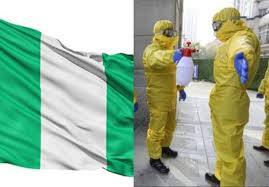The minister emphasised the urgency of the current situation regarding Covid-19, which necessitated the convening of the meeting to agree on strategies toward protecting the population of the region.
He noted that “following expert presentation on the global situation, the processes currently in place in the region and laboratory preparedness, the ministers resolved to strengthen coordination, communication and collaboration among member states.
“This is in preparation for the Covid-19 epidemic, including cross-border collaboration. We will enhance surveillance and management measures for Covid-19, particularly at entry points — air, land and sea.
“We will also step up communication to ensure that the public receives accurate, appropriate and timely information regarding the epidemic.”
Mamora added that the health ministers also resolved to urgently strengthen critical national capacities for diagnosing and managing cases.
“We will develop a strategic costed regional preparedness plan based on member states’ priorities for governments, partners and the private sector to support,” he said.
The minister explained that the member states also resolved to promote multi-sectoral national efforts, using one-health approach to maximise impact in the region.
He said that the member states would be working closely with relevant authorities of national governments and the Chinese Government to monitor and assess the health situation of ECOWAS citizens resident in China.
“The ministers note, support and commend the efforts of the Government of the People’s Republic of China toward managing the epidemic.
“The ministers expressed gratitude to President Ibrahim Boubacar Keita of the Republic of Mali and the Government and People of Mali for their warm welcome and hospitality, and all the facilities availed to them during the emergency meeting.
“The ministers endorsed the final communiqué and report of the emergency meeting.”
Meanwhile, Prof. Stanley Okolo, the Director General, West African Health Organisation (WAHO), said that the number of laboratories in Africa that could test samples for Covid-19 had continued to increase by the day.
Okolo said it was a critical step in preparedness, given the importance of early detection and monitoring during viral outbreaks.
He added that the first virus case in Africa had been confirmed, and explained that the global public health consensus was that many sub Saharan African countries were vulnerable to a viral outbreak like coronavirus due to inadequate health infrastructure and personnel.
He quoted Dr. Matshidiso Moeti, WHO Regional Director for Africa, as saying that the new virus was a challenge and most laboratories in Africa lacked the key material needed to perform tests on a novel pathogen.
According to Moeti, WHO is working with countries to rapidly scale-up diagnostic capacity for the disease.
“It is crucial that countries in the region can detect and treat severe cases early, preventing a widespread outbreak, which can overwhelm the fragile health systems,” Moeti said.
Updates from Africa Centre for Disease Control, Nigeria and 17 other countries in Africa have identified people with symptoms and travel history as per case definition for COVID-19.
All cases tested have been negative, except for one confirmed case in Egypt reported on February 14.
source: DailyTimes

 Ministers of Health of the Economic Community of West African States (ECOWAS) have agreed to support member states for a regional preparedness and response to the ongoing Covid-19 (Coronavirus).
Ministers of Health of the Economic Community of West African States (ECOWAS) have agreed to support member states for a regional preparedness and response to the ongoing Covid-19 (Coronavirus).




